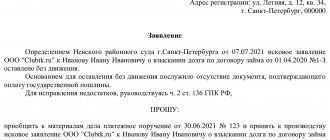At the birth of a child, information about the mother is entered into the register of the civil registry office and the birth certificate only on the basis of a certificate from the maternity hospital. It confirms that this child was born to this woman.
Cases of challenging maternity in legal practice are extremely rare; this is only possible in the case of replacing children in the maternity hospital. Establishing and challenging paternity occurs much more often.
The status of the relationship between a man and a woman is of great importance. If they were not in a registered marriage, then the man can voluntarily recognize himself as the father - in this case, the civil registry office issues two documents: a birth certificate of the baby and a certificate of paternity.
The second example: a woman files a claim for forced establishment of paternity against a man who refuses to recognize himself as such.
Usually it all ends with the appointment of a forensic genetic examination, on the basis of which a final decision is made.
If a man and a woman are legally married, then at the birth of a baby, the father is by default the husband. This happens not only during marriage, but also 300 days after its dissolution.
In legal practice, this phenomenon is called the presumption of paternity; information in the birth record is entered only on the basis of a marriage registration certificate. Even if a man refuses to recognize himself as a father, he will still be included in the documents. The only option is to challenge paternity in court.
As practice shows, this is a rather lengthy and complex legal procedure that requires the assistance of an experienced lawyer. Today we will tell you on what grounds you can challenge paternity in court, how to properly prepare a statement of claim and evidence, what to do with assigned alimony, and whether it is possible to return money illegally received by the child’s mother.
Legal grounds for challenging paternity
In reality, it very often happens that the man recorded as the father on the child’s birth certificate is not such. To challenge this fact in court, you need compelling reasons. Here are some popular examples:
- The man was legally married to the child’s mother, and after some time he finds out that he is not the biological father.
- The man, who is in fact the biological father, files a lawsuit to challenge the paternity of the husband of the mother of the child who was entered on the birth certificate based on the presumption of paternity.
- The child's mother knows that her husband or ex-husband is not the biological father. She files a paternity suit to prevent him from making claims for child support against his son/daughter in the future.
- The lawsuit is filed by a man who was not in a registered marriage with the child’s mother and who voluntarily admitted that he is the father. This is only possible if at the time of entering data into the birth record he was sure of his own paternity.
After the Family Code of the Russian Federation came into force in 1996, the circle of persons who can challenge records of parents has significantly expanded. Previously, only the father and mother, who were indicated as such on the baby’s birth certificate, had this right. Now biological fathers, who in fact are such, can also challenge paternity, but the documents of the registry office are not included.
The following may act as plaintiffs in the process of challenging paternity:
- The man recorded as the child's father.
- The actual biological father, information about whom is not included in the baby’s birth documents.
- Mother of the child.
- Guardian or trustee of a minor.
- The child himself after reaching adulthood.
Important! We have provided an exhaustive list of persons. Other first-degree relatives (grandparents) cannot go to court with a claim to challenge paternity.
Even if the baby’s parents have not reached the age of majority! An exception is made only for guardians if the mother and father of the child are under 16 years of age.
Claim for invalidation of paternity
The claim contains a demand for the court to recognize the fact of paternity as invalid. This claim may be brought by:
- A person who is registered as a parent.
- A person who believes that he is the real biological father.
The legislator limited the rights to make such a demand to a certain circle of people (for example, a man who gave his consent to enter information about him as a father, but he knew in advance that he was not).
The peculiarity of such a claim is that the applicant demands to cancel the record of paternity, since the man sincerely believed that this was his child, and the circumstances of his non-paternity became clear later. If the child’s mother agrees with the plaintiff’s demands (she can confirm this fact at a court hearing, or a genetic examination was carried out by mutual consent before the court hearing), then she can file a claim to invalidate the fact of paternity. After which the court will satisfy the request for recognition.
However, if the mother opposes filing an application for recognition of the claim, but does not refuse to confirm this fact during the court hearing that the plaintiff is not the father of the child, then the court may assess this circumstance as invalidating the fact of paternity.
The applicant in his claim asks the court to oblige the defendant to undergo a forensic examination, and if the result is positive, to invalidate the father’s record. To substantiate his claims, the applicant can submit written evidence confirming the fact of his absence during the period of conception (for example, a certificate of business trip, presence at military training, witness testimony, an extract from an outpatient card about his wife’s pregnancy, and others).
Procedure for challenging in court
The very first and key step is to correctly draw up a statement of claim. It is submitted at the place of actual residence of the defendant, and is drawn up in accordance with the requirements of the Civil Procedure Code of the Russian Federation. In case of violation of jurisdiction, filing deadlines, or missing the limitation period, the court may reject the claim or leave it without progress.
To avoid such troubles, seek help from a competent lawyer. An experienced defense lawyer who specializes in family disputes knows court practice well and will be able to prepare high-quality documents.
He will quickly draw up a statement of claim, collect evidence and properly prepare it for the court, and will also represent your interests until a court decision is made.
If we consider the classic example of a claim to challenge paternity, then it is necessary to indicate the name of the court, provide information about the plaintiff and defendant (full name, addresses, contact details), about the child.
Next comes the substantiation of the claims: you need to set out in detail and at the same time clearly the circumstances that became the basis for filing the claim. If the evidence base includes testimony from witnesses, be sure to provide their contact information for communication. The following documents are attached to the claim:
- Receipt for payment of state duty.
- A copy of the statement of claim for the defendant.
- Copies of marriage, divorce, and birth certificates.
- Any written evidence.
In addition to the plaintiff and defendant, a third party, the civil registry office, also indirectly takes part in the court hearing. If the claim is satisfied, then based on the court decision, changes must be made to the birth certificate of the child.
What can serve as evidence in the case?
The key and indisputable evidence is the results of genetic testing. If the defendant in court refuses to acknowledge the demands to challenge paternity, the plaintiff files a petition to conduct a forensic genetic examination. Its results, with an accuracy of 99 and 9 percent in the period, will confirm the validity or fallacy of the stated claims.
In legal practice, there have been situations when the defendant (the child’s mother) refused to conduct a genetic examination or interfered with its conduct. In this case, the court reserves the right to satisfy the claims automatically.
Not so strong, but significant evidence in the case can include witness testimony, medical documents (for example, a man’s infertility confirmed by an extract from a medical record), photographic and video materials.
If the defendant admits the claim voluntarily, the court satisfies the plaintiff’s demands, and adjustments are made to the registry office’s record of the child’s birth.
How to write a claim correctly?
Drawing up a claim is the first step in resolving the issue of the true father of the child. Depending on which parent will submit the application, its content varies.
There are general legal standards that the document must comply with in any case. These are articles 131 and 132 of the Code of Civil Procedure of the Russian Federation. If the applicant does not want to waste time on finalizing the claim, it is recommended to approach its preparation competently.
From the child's father
In a situation where a man initially agreed to register a child under his personal data, but then decided to refute this fact, he must independently prove to the court the valid reasons for canceling paternity. These circumstances must be indicated in the claim.
For example, during registration and entering information about the father, the child’s mother could mislead or deceive the citizen. Then the plaintiff will have to try to prove these or similar facts.
If the plaintiff voluntarily admitted paternity, not being the biological parent of the child and not knowing about it at the time of recording in the certificate, he must prove the latter.
If he was previously aware of the lack of biological relationship, but he became the official father, acting under the threat of violence or otherwise and without realizing his own actions, this should be indicated in the claim.
The circumstances that the parties refer to during the hearing must be correctly stated in the claim. Taking into account the complex of evidence, oral and written explanations of the plaintiff, the judge will make a positive decision, that is, paternity will be challenged.
From the child's mother
A woman must provide the same information in her claim as a man. It is also necessary to add information to the text of the petition that the marriage with the defendant was registered during pregnancy, while there was no actual cohabitation.
Supporting documents must be attached to the application (official marriage document, individual card of the pregnant woman, birth certificate of the child).
Who cannot challenge paternity
The Family Code does not allow paternity to be challenged by a man who voluntarily recognized himself as the father, at that time clearly knowing that there is no blood relationship with the newborn. The situation is similar with artificial insemination: when filing a claim, you cannot plead ignorance.
What to do in such a situation? Practice shows that you need to voluntarily negotiate with the mother or, in extreme cases, with the child’s biological father. They still have the right to file a lawsuit to challenge paternity.
Judgment
In its decision on cases of refuting the fact of paternity, the court analyzes specific circumstances, as well as the presented evidence base in accordance with procedural rules. The court's decision either satisfies or rejects the plaintiff's claims. If the outcome of the case is positive for the applicant, the court’s resolution indicates the need to:
- cancel the father's record;
- making amendments to the act registration record;
- obliges a specific registry office department to perform the specified actions (to issue a new certificate with changed data).
Below you will find an example of a court decision to challenge paternity, available for download.
Court decision to challenge paternity
court decision to challenge paternity (part 1)
court decision to challenge paternity (part 2)
court decision to challenge paternity (part 3)
court decision to challenge paternity (part 4)
Algorithm of actions when challenging paternity
To challenge paternity and make changes to the civil registry, you need to:
- Prepare a statement of claim for the court and collect evidence. The evidence base is the responsibility of the plaintiff, because a claim without grounds will be immediately rejected by the court or left without progress.
- Submit documents to the court, wait for confirmation that the claim will be accepted for proceedings.
- Come to court.
- If the defendant agrees with the claim voluntarily, the demands are satisfied without examining the evidence base and ordering a genetic examination. The decision is made automatically at the first meeting.
- Receive a court decision after it comes into force (within 30 days).
Cancellation and return of alimony
If a man has successfully challenged paternity, another question arises: what to do with alimony that was previously ordered by the court, paid voluntarily or as part of enforcement proceedings. It is important to distinguish between the cancellation of existing alimony obligations and the return of previously paid funds.
To cancel the assigned alimony, the man must apply to the court with an additional statement of claim. If the claim to challenge paternity was satisfied, then a court decision on this will be sufficient to cancel alimony.
Remember that this does not happen automatically: a separate claim and a separate trial are required. Until a decision is made to cancel alimony, you must fulfill your previously assumed obligations. Even if the new process takes several months.
As for the return of previously paid alimony, the Family Code does not provide for such a possibility. In some cases, you can return funds:
- The collection of alimony was carried out on the basis of false paternity documents.
- The agreement on voluntary payment of alimony was declared invalid in court.
- Alimony was collected on the basis of a fake court decision or writ of execution, which was revealed in a separate trial.
Some questions and answers
Many people turn to lawyers with their problems regarding invalidation of paternity. Both mothers and fathers of children ask questions to professionals.
Situations vary. If a child was born within the framework of a family relationship, it can be more difficult to refute paternity.
However, courts often make decisions in favor of the interested party to the dispute. It is only important to prepare your claim correctly.
Denial of paternity
My husband flatly refuses to confirm that our little daughter is his and is threatening us with divorce. What should I do? We recommend! Sample statement of claim to determine the place of residence of a child, jurisdiction of cases
Alla, Moscow.
Expert commentary
Roslyakov Oleg Vladimirovich
Lawyer, specialization civil law. More than 19 years of experience.
Contact the court with a substantiated claim to establish the fact of paternity. At the same time, you should insist on ordering an examination. Judges usually agree to this request. It is important to know that if the spouse refuses the research, the court ultimately has the right to do without its results. There is an article for this. 79 Code of Civil Procedure of the Russian Federation.
The birth of a child without long-term cohabitation of spouses
I have not lived with my wife for several years. Moreover, now we are in different cities. I heard from friends that her son was born a month ago. How can I protect myself from claims regarding alimony?
Fedor, Balashikha.
Expert commentary
Roslyakov Oleg Vladimirovich
Lawyer, specialization civil law. More than 19 years of experience.
For now you can do nothing. If a claim arises, counterclaims can be made. They will concern the exclusion of information about your paternity from the registry office documents.
Evidence of non-paternity
This is the situation. My wife gave birth to a girl as part of our marriage. I have reasonable suspicions that this is not my daughter. What is the best way for me to deal with this situation?
Konstantin, Krasnogorsk.
Expert commentary
Roslyakov Oleg Vladimirovich
Lawyer, specialization civil law. More than 19 years of experience.
From a worldly point of view, it is best to talk to your wife and resolve all differences. However, you can insist on conducting a biological examination. The court has the authority to appoint it.
Alimony and paternity
Please advise how to solve this problem of mine. I am currently paying child support for my five year old son. However, I became reliably aware that he has a different father. What should I do?
Evgeniy, Vnukovo.
Expert commentary
Roslyakov Oleg Vladimirovich
Lawyer, specialization civil law. More than 19 years of experience.
The only correct solution would be to go to court. The submitted statement of claim may contain several demands. The first of them has an emphasis on legally establishing the fact that you are not the boy’s natural father. You also need to ask to cancel the existing record for the child and exemption from paying existing child support. When collecting them by bailiffs, it is necessary to transfer to them the court decision that has entered into force.








